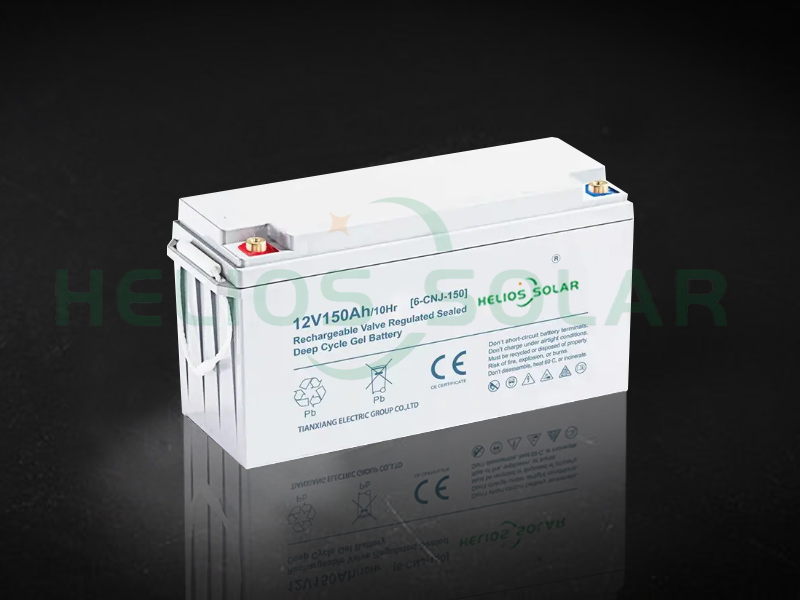In the areas of renewable energy and off-grid living, the choice of battery technology is crucial to ensuring a reliable power supply. Among various types of batteries, gel batteries are popular for their unique properties and advantages. This article explores the suitability of gel batteries for inverters, highlighting their advantages and overall performance.
Main features of gel batteries
1. Maintenance-free: One of the outstanding features of gel batteries is their maintenance-free nature. Unlike flooded batteries, which require regular refills of distilled water, gel batteries do not require such maintenance, making them a convenient option for users.
2. Safety: Gel batteries are safer to use because they are sealed and will not release harmful gases during work. This makes them suitable for indoor use where ventilation may be limited.
3. Longer Service Life: If properly maintained, gel batteries last longer than traditional lead-acid batteries. They are able to withstand deep discharges without causing major damage, which helps extend their service life.
4. Temperature Tolerance: Gel batteries perform well within a certain temperature range and are suitable for various environments. They are less susceptible to damage from extreme heat or cold than other types of batteries.
5. Low Self-Discharge Rate: Gel batteries have a low self-discharge rate, which means they can retain charge for long periods of time when not in use. This feature is particularly beneficial for seasonal or backup power applications.
Are gel batteries suitable for inverters?
The short answer is yes; gel batteries are indeed suitable for inverters. However, whether gel batteries are suitable for inverter applications depends on several factors, including the specific requirements of the inverter system and the intended use of the power supply.
Advantages of using gel batteries and inverters
1. Deep Cycle Performance: Inverter systems often require batteries that can handle deep discharges. Gel batteries excel in this regard, providing reliable power even when discharged to lower levels. This makes them ideal for applications that draw power continuously, such as off-grid solar systems.
2. Compatibility with Inverter Technology: Most modern inverters are designed to work with a variety of battery types, including gel batteries. They efficiently convert energy stored in gel batteries into usable AC power for home appliances and devices.
3. Reduce the Risk of Damage: The sealed design of gel batteries minimizes the risk of damage from spills or leaks, making them a safer choice for inverter systems, especially in confined spaces.
4. Longer Cycle Life: Gel batteries generally have a longer cycle life than traditional lead-acid batteries. This means users can expect more charge and discharge cycles before needing to replace the battery, reducing long-term costs.
5. Less Maintenance: The maintenance-free nature of gel batteries means users can focus on other aspects of their energy system without having to worry about regular battery maintenance.
In conclusion
In summary, gel batteries are an excellent choice for inverter systems, offering a range of advantages and suitable for a variety of applications. Their deep cycle capabilities, maintenance-free design and safety features make them a reliable choice for off-grid living, renewable energy systems and backup power solutions.
When selecting a battery for an inverter system, it is important to evaluate your specific needs and ensure compatibility with the inverter technology. With the right setup, gel batteries can provide powerful and efficient power for years to come.
Post time: Nov-07-2024


